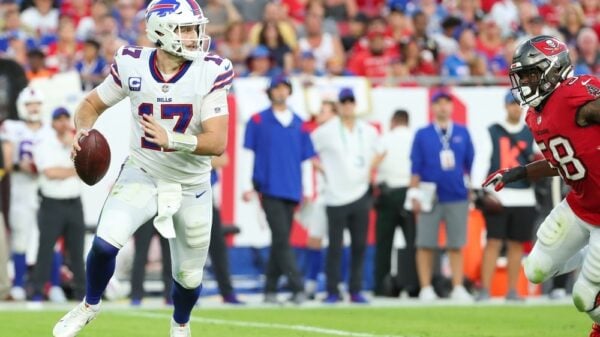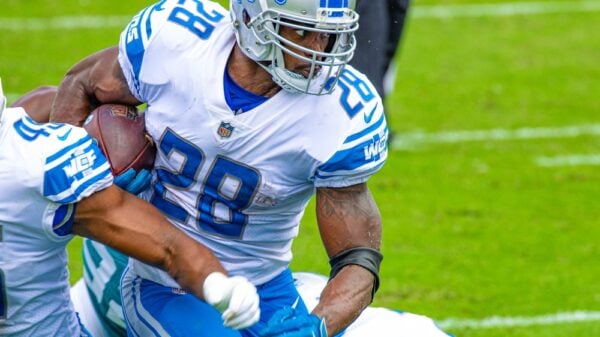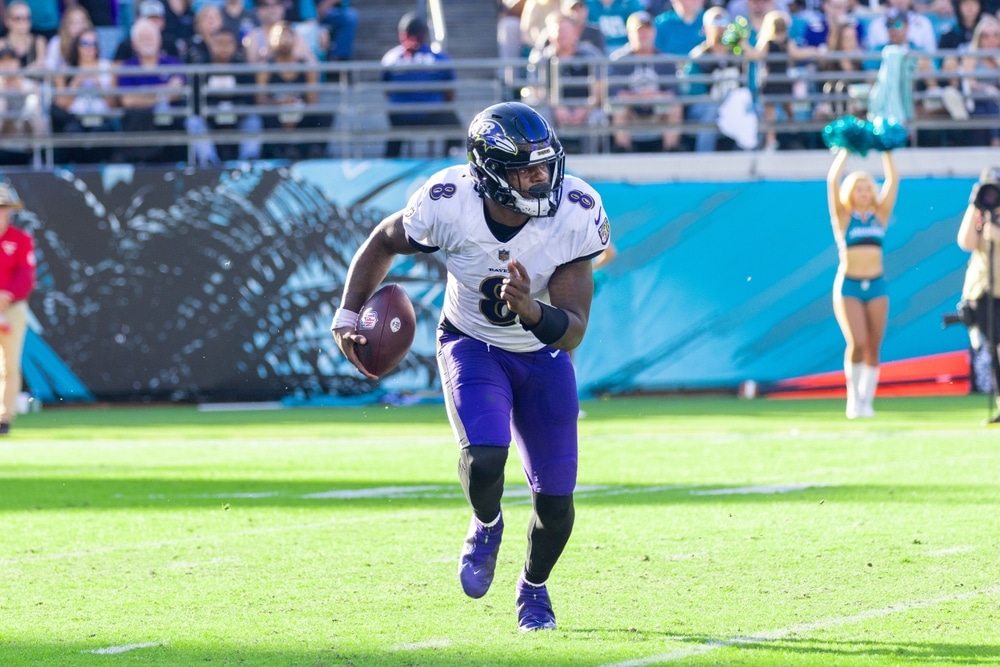The Baltimore Ravens’ recent departure from the playoffs, following a narrow 27-25 loss to the Buffalo Bills, has thrust quarterback Lamar Jackson back into the limelight for all the wrong reasons. This time, the scrutiny centers on a pivotal missed opportunity by tight end Mark Andrews, who mishandled a potentially game-altering touchdown pass. This incident has reignited discussions about Jackson’s performance under postseason pressure—a narrative that often resurfaces when the Ravens find themselves facing critical playoff moments.
On a recent episode of “SPEAK” on Fox Sports, NFL Hall of Famer Michael Irvin shared his candid thoughts regarding Jackson’s challenges. Drawing on his own experience, Irvin highlighted Jackson’s playoff record of 3-5, emphasizing the importance of turnovers, especially during the playoffs, as a vital factor in evaluating Jackson’s capacity to guide his team deep into the postseason.
Irvin argues that while Jackson undoubtedly possesses skills comparable to elite quarterbacks, he cannot earn the moniker of “Super QB” until he makes significant strides in reducing his turnover rate. This perspective aligns with sentiments echoed by many fans and analysts. In contrast, Bills quarterback Josh Allen, who boasts a playoff record of 7-5, presents remarkably superior postseason statistics. Over his playoff career, Allen has amassed 3,122 passing yards, with 23 touchdowns and only four interceptions over 426 attempts. In comparison, Jackson’s playoff performance reveals a much different picture: he has accrued 1,753 yards with 10 touchdowns and seven interceptions across 241 attempts, leading to a passer rating of 84.6, considerably lower than Allen’s 101.5.
It’s important to acknowledge that the Ravens’ playoff experience this season has been filled with its share of frustrations. Andrews’ near-touchdown epitomized how decisive each play can be in closely contested games. Despite having a league-leading nine Pro Bowl selections, it’s evident that Jackson’s turnover issues have hindered the team’s success in reaching their objectives. In such tightly contested matches, every offensive possession is crucial, and even a single error can lead to dire consequences.
While it might be tempting to place the blame entirely on Jackson, it’s vital to remember that football is fundamentally a team endeavor. As the leader of the offense, he bears significant responsibility, but the Ravens’ playoff setbacks cannot be attributed solely to him. Irvin’s criticisms resonate, and Jackson appears aware that this narrative is part of a larger dialogue. In his post-game press conference, he accepted responsibility for his two turnovers, labeling them “costly” mistakes. He admitted to misreading the coverage that led to his first-half interception but also pointed out his improved performance in the second half. Nevertheless, other players in crucial positions also fell short, underscoring that this situation is not solely about Jackson.
Looking ahead, Jackson’s skill set suggests he will remain among the NFL’s top passers. The Ravens are expected to rebound and make a playoff push next season, particularly as fans anticipate potential roster changes during the offseason. Regardless of how the team evolves, one aspect remains clear: Jackson will continue to lead the charge in their quest for a Super Bowl title. Fans can expect him to rise to the occasion, motivated to secure postseason victories and silence his detractors. The road may be challenging, but Jackson’s renewed focus and dedication seem poised to elevate both him and the Ravens to new heights.






















